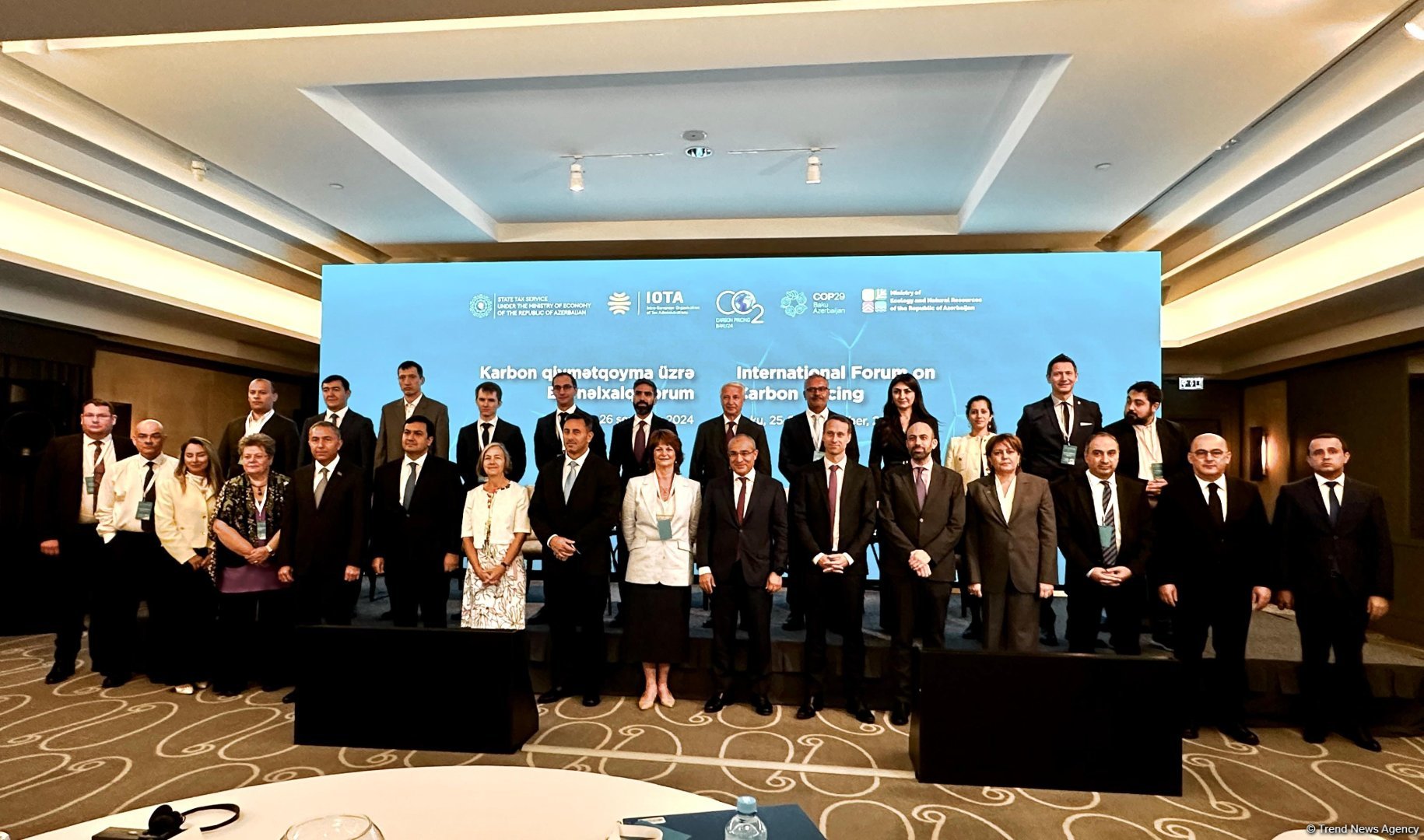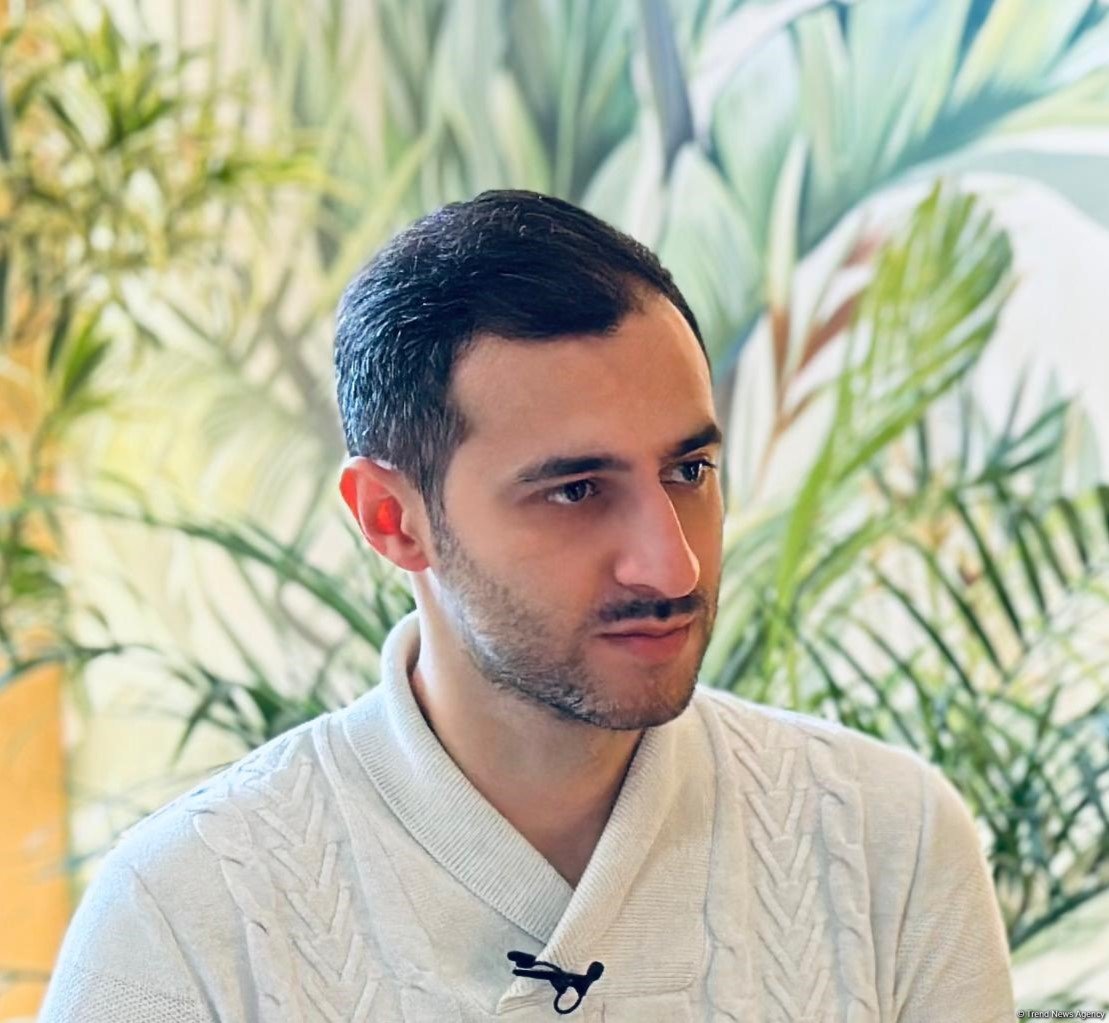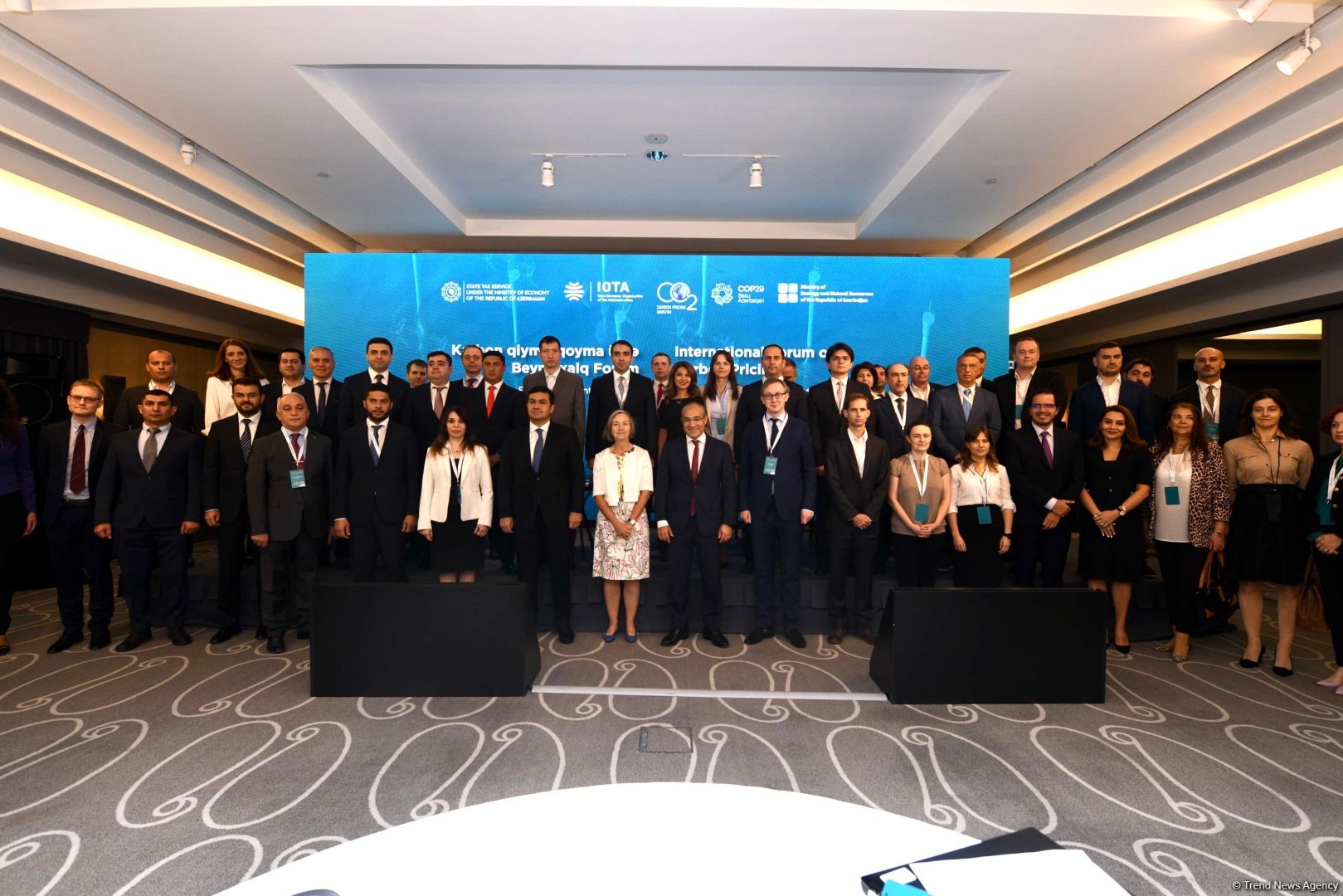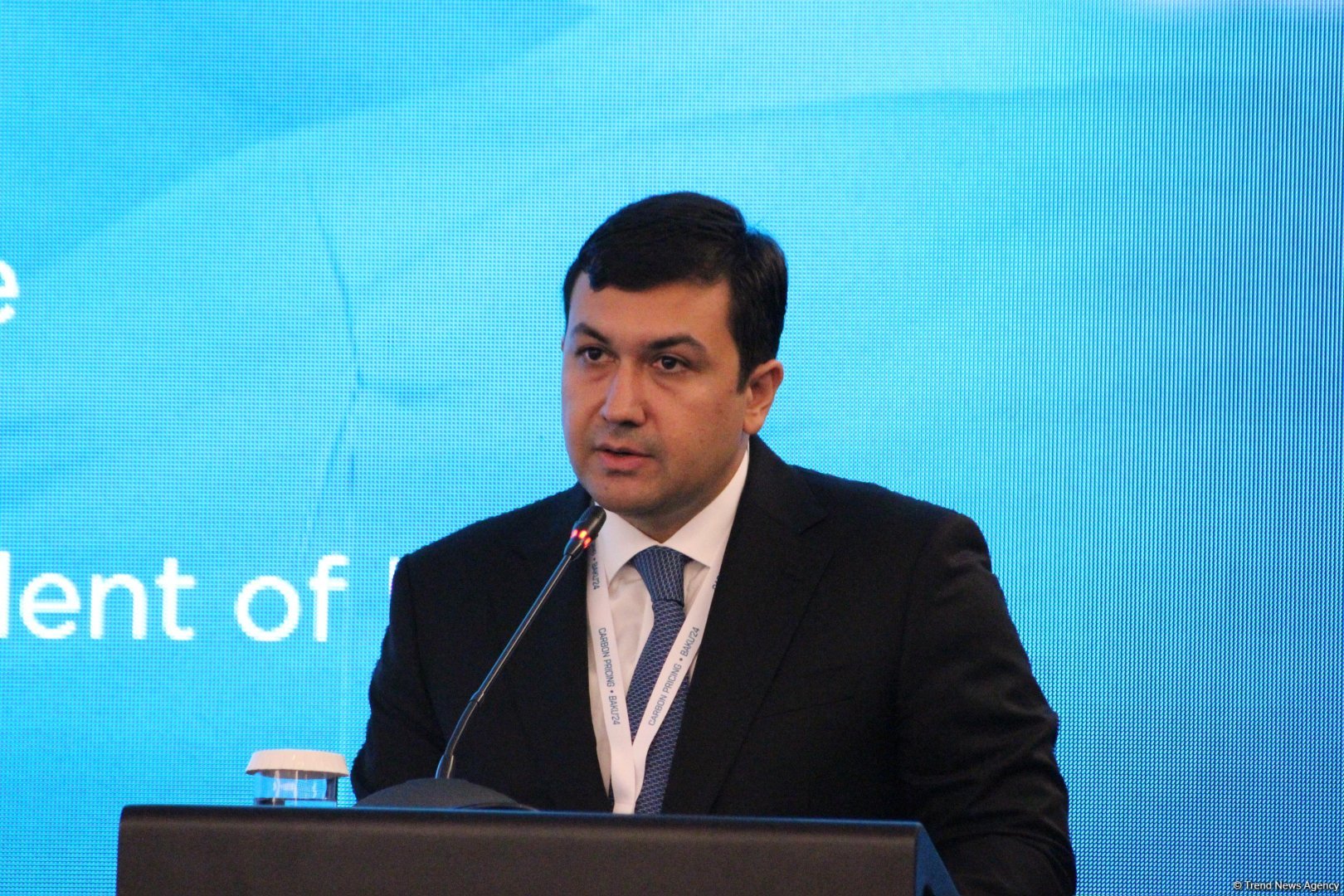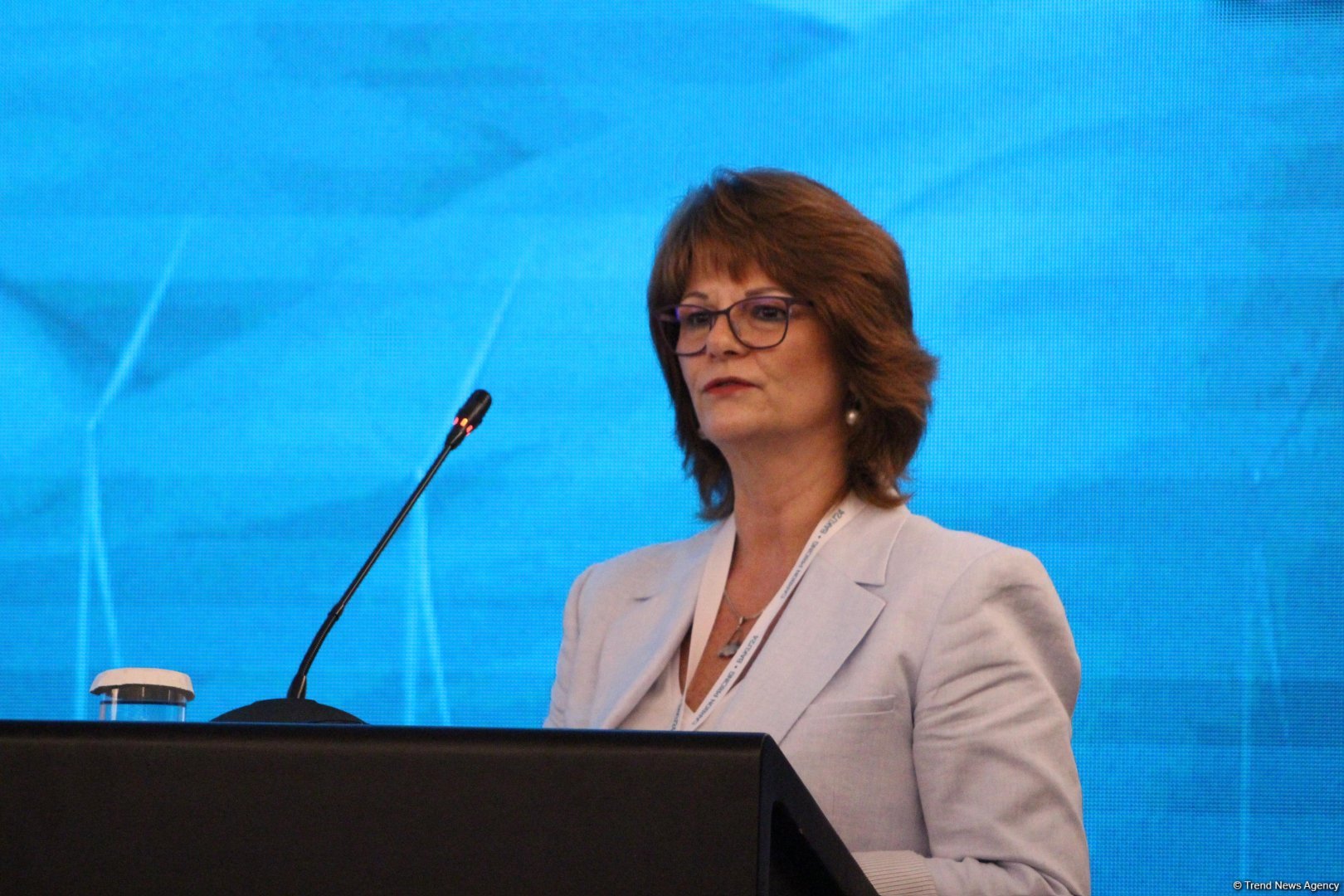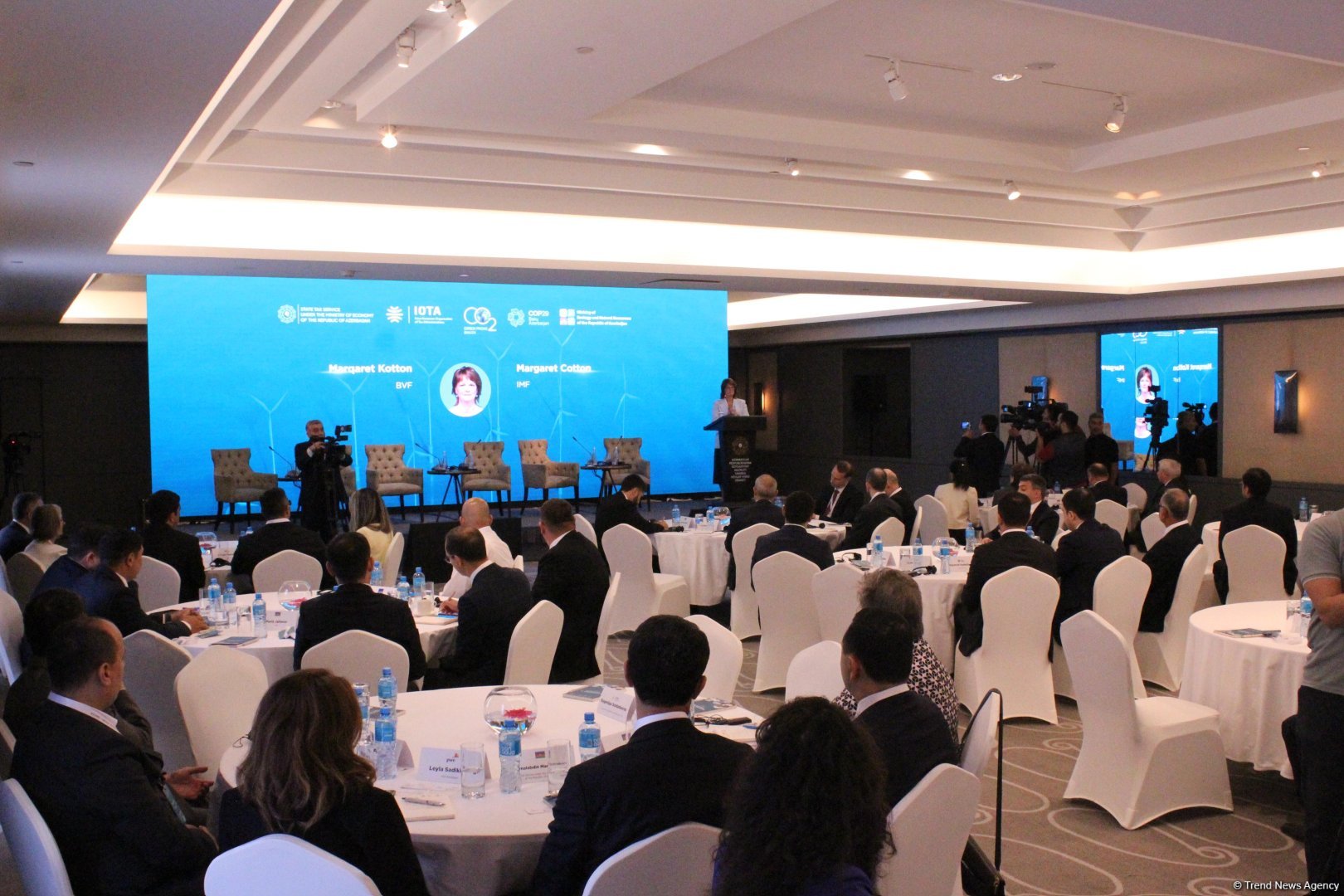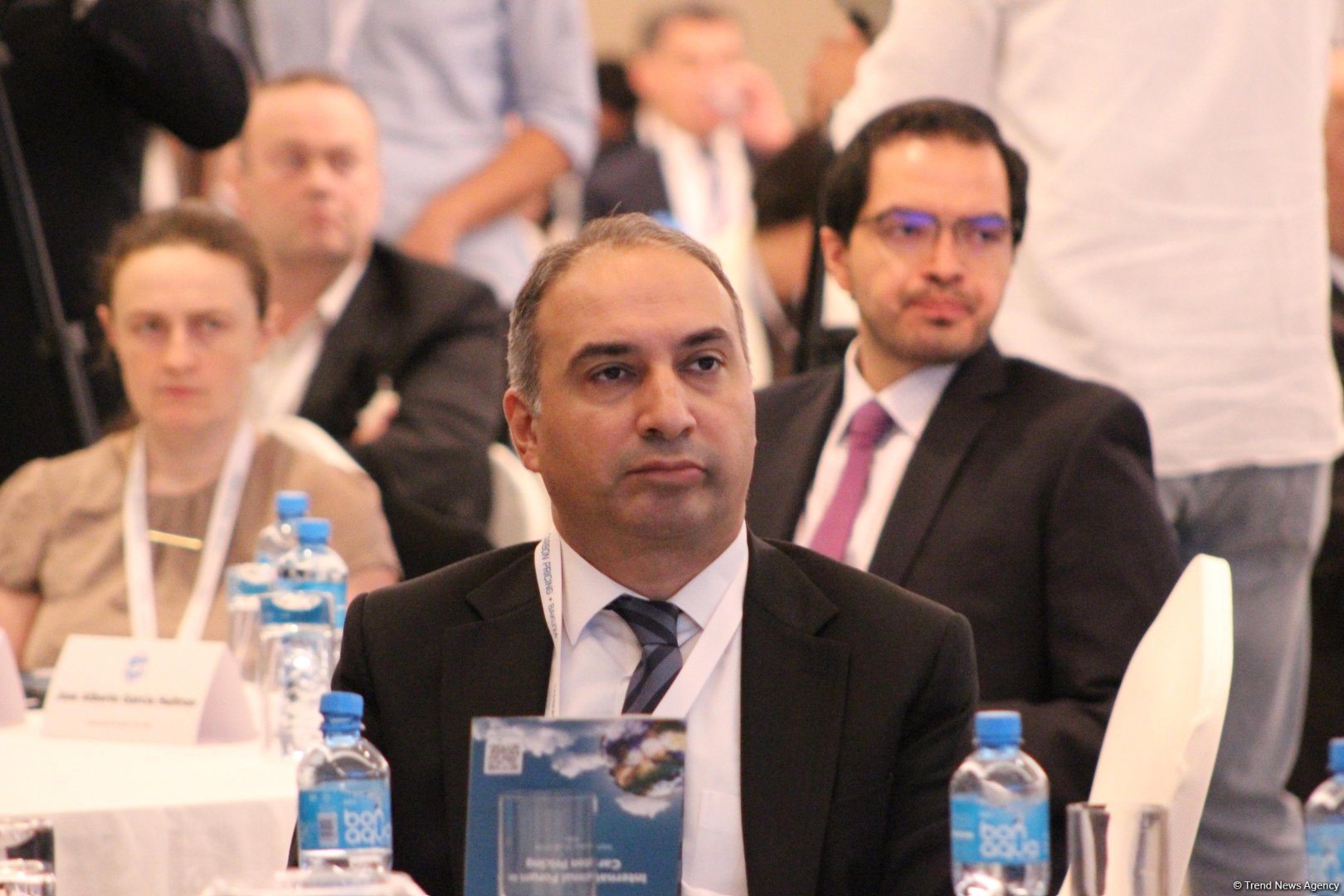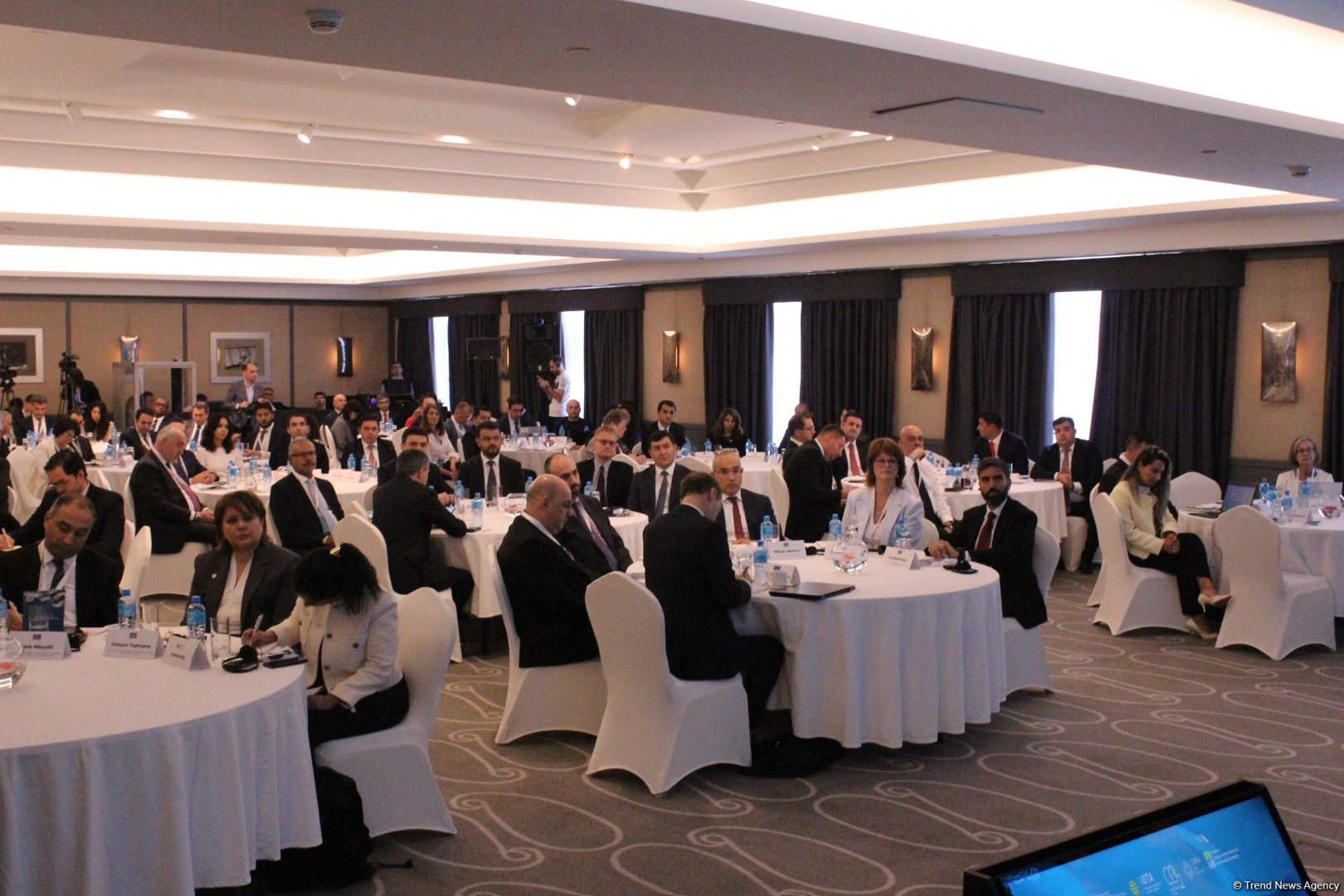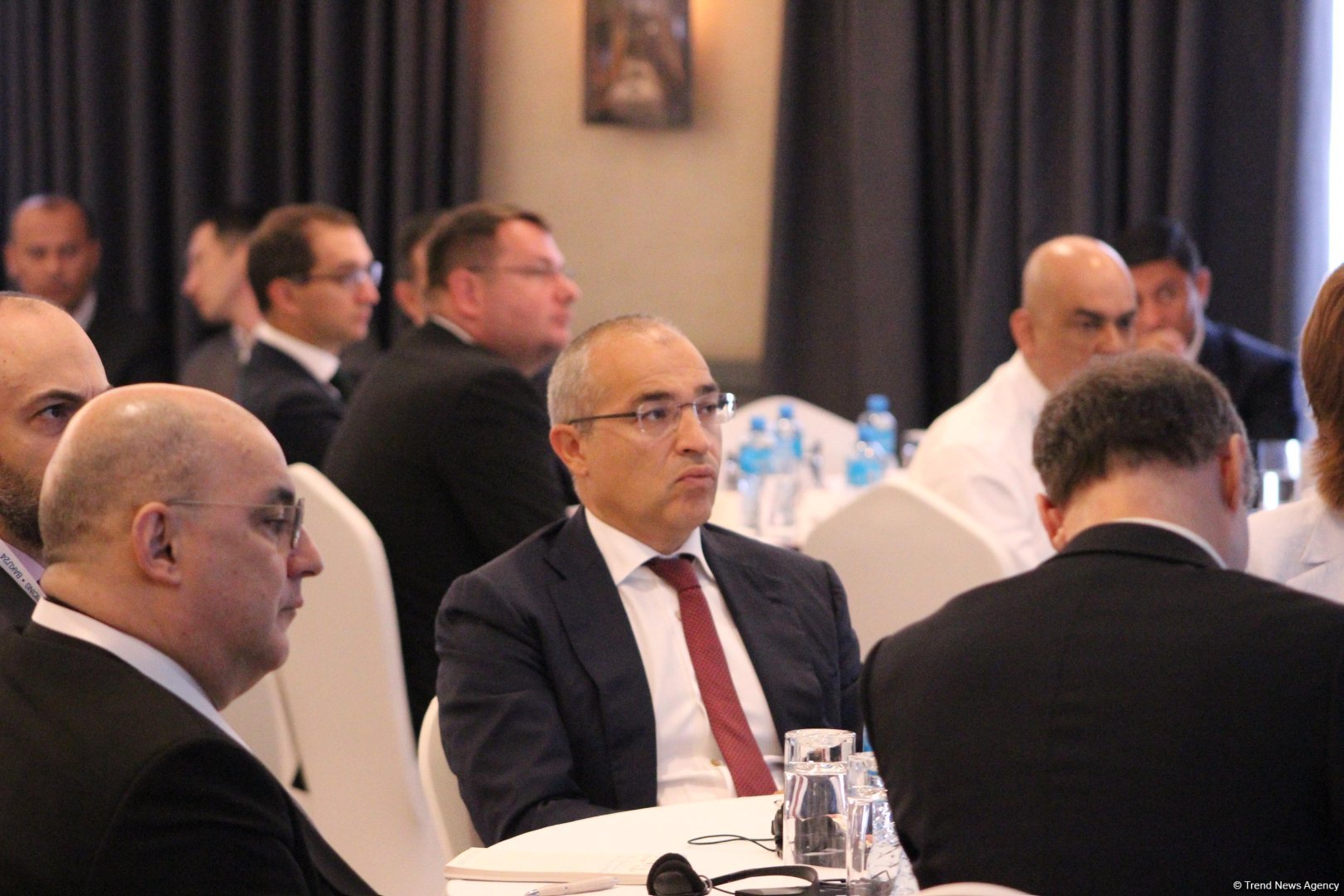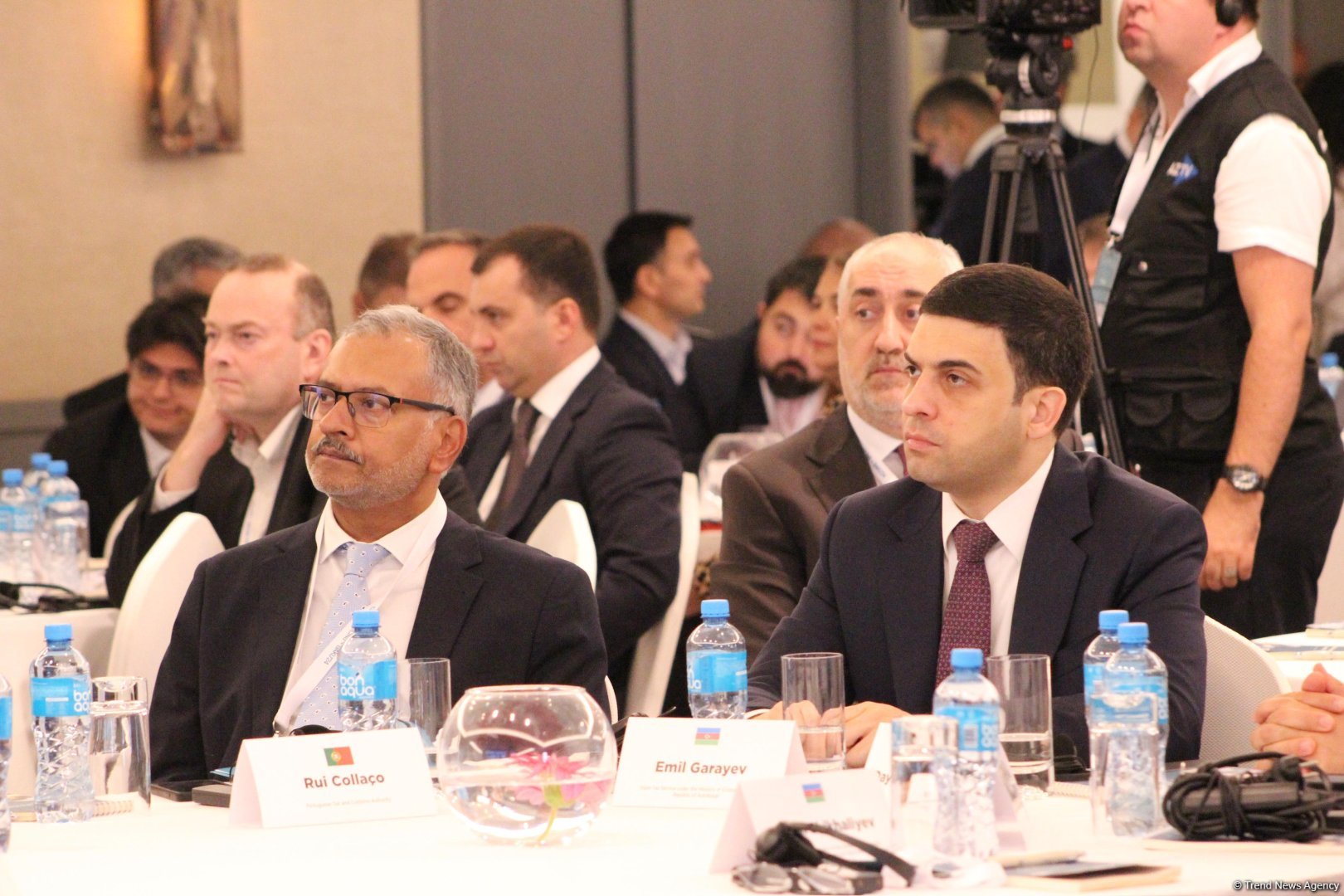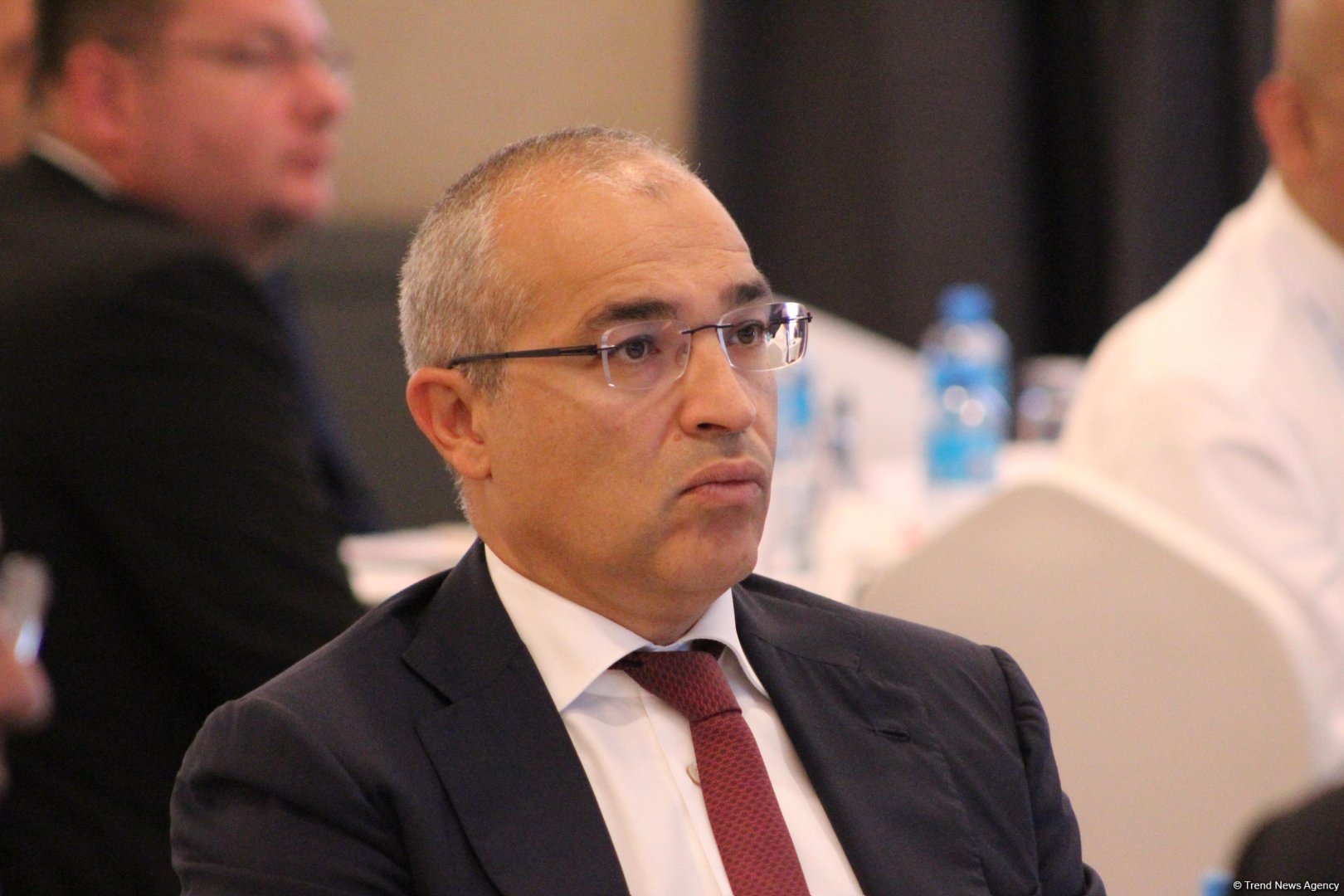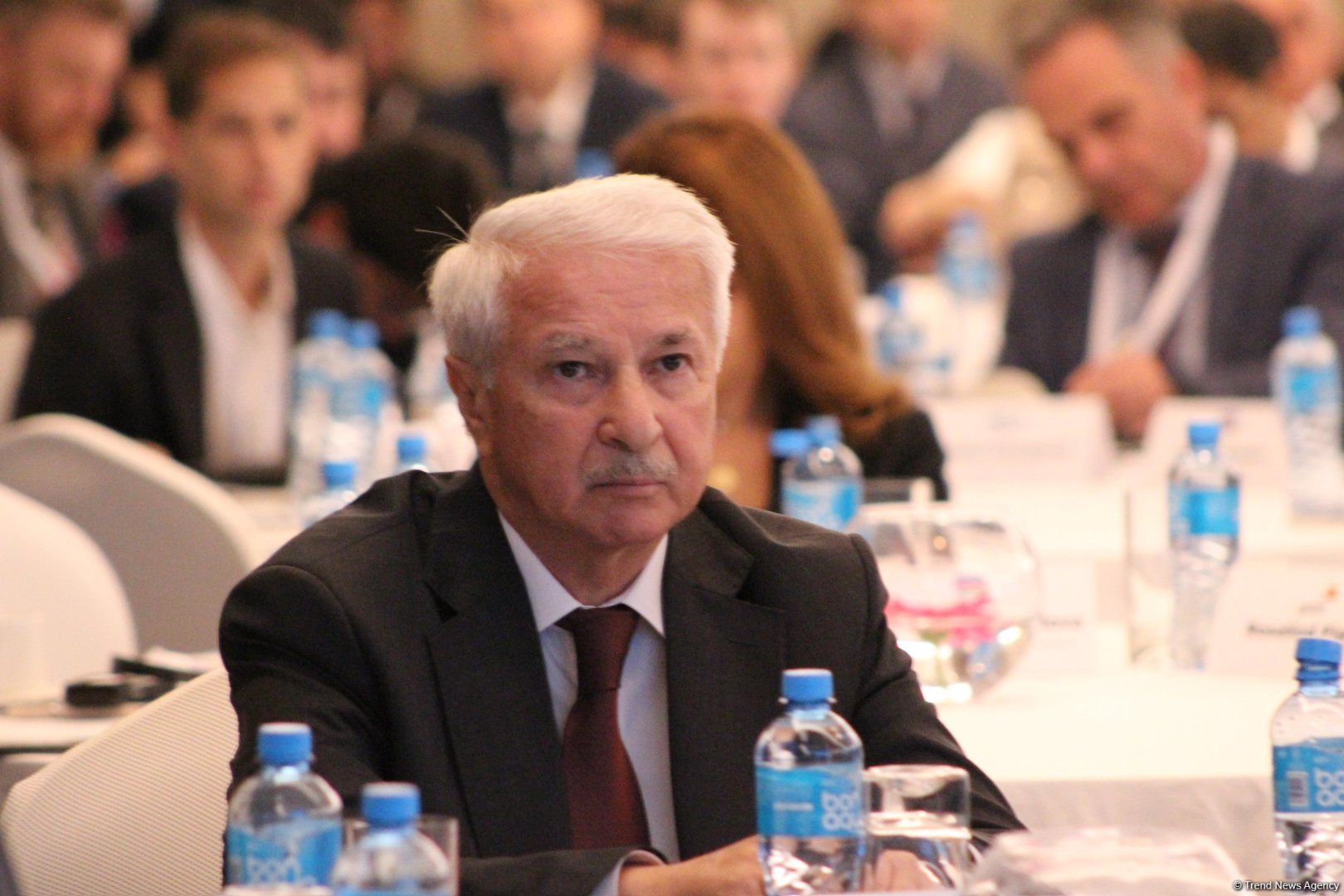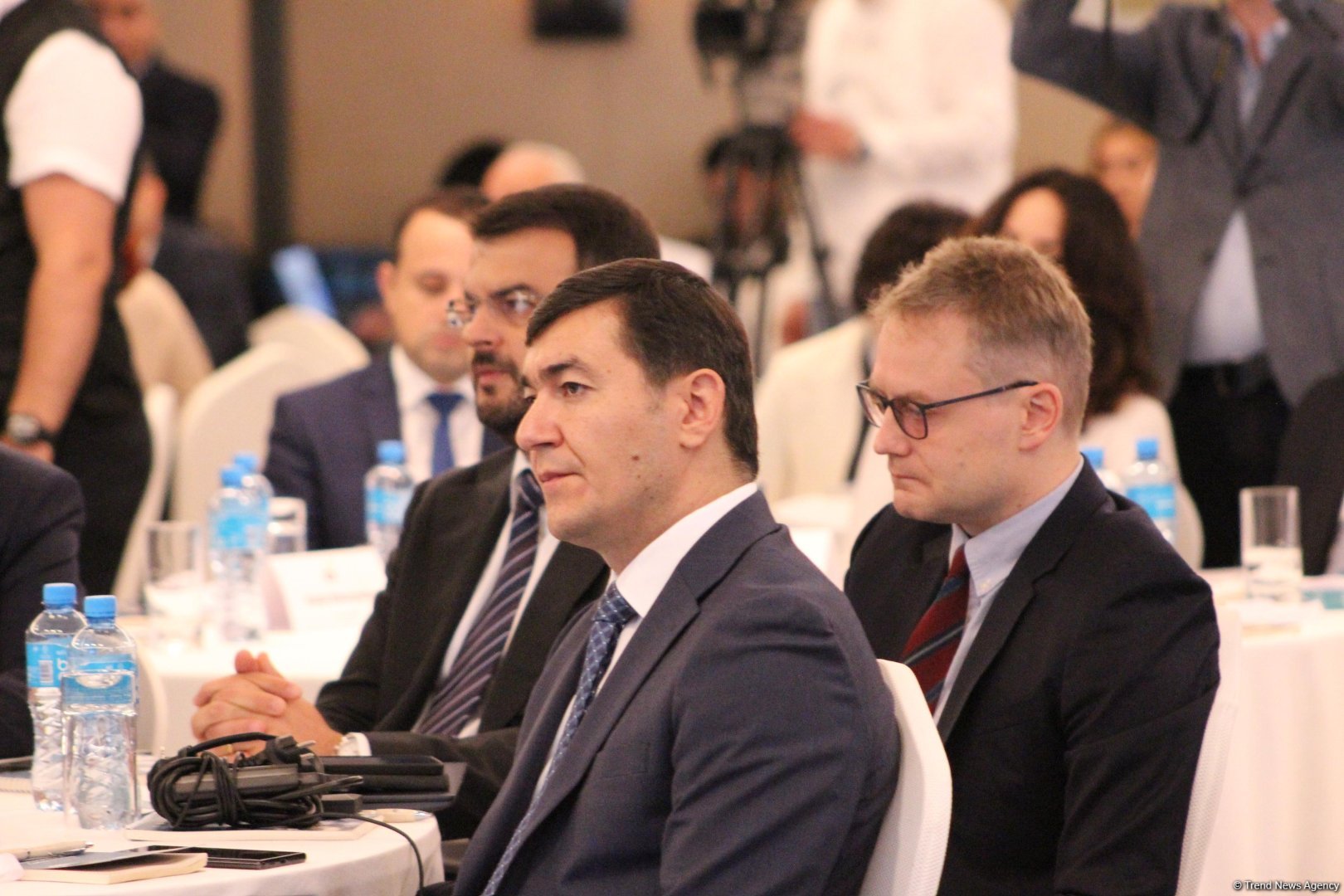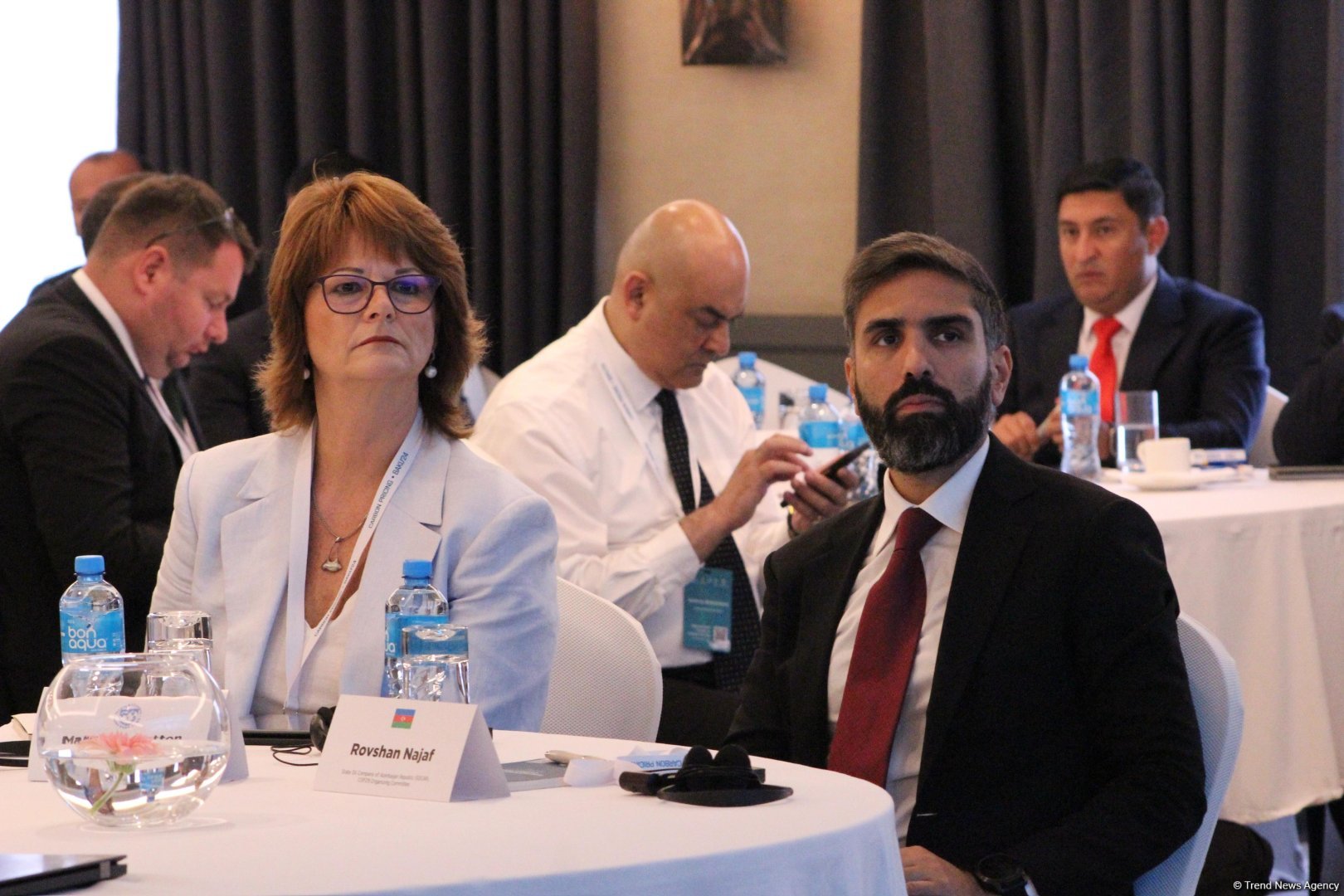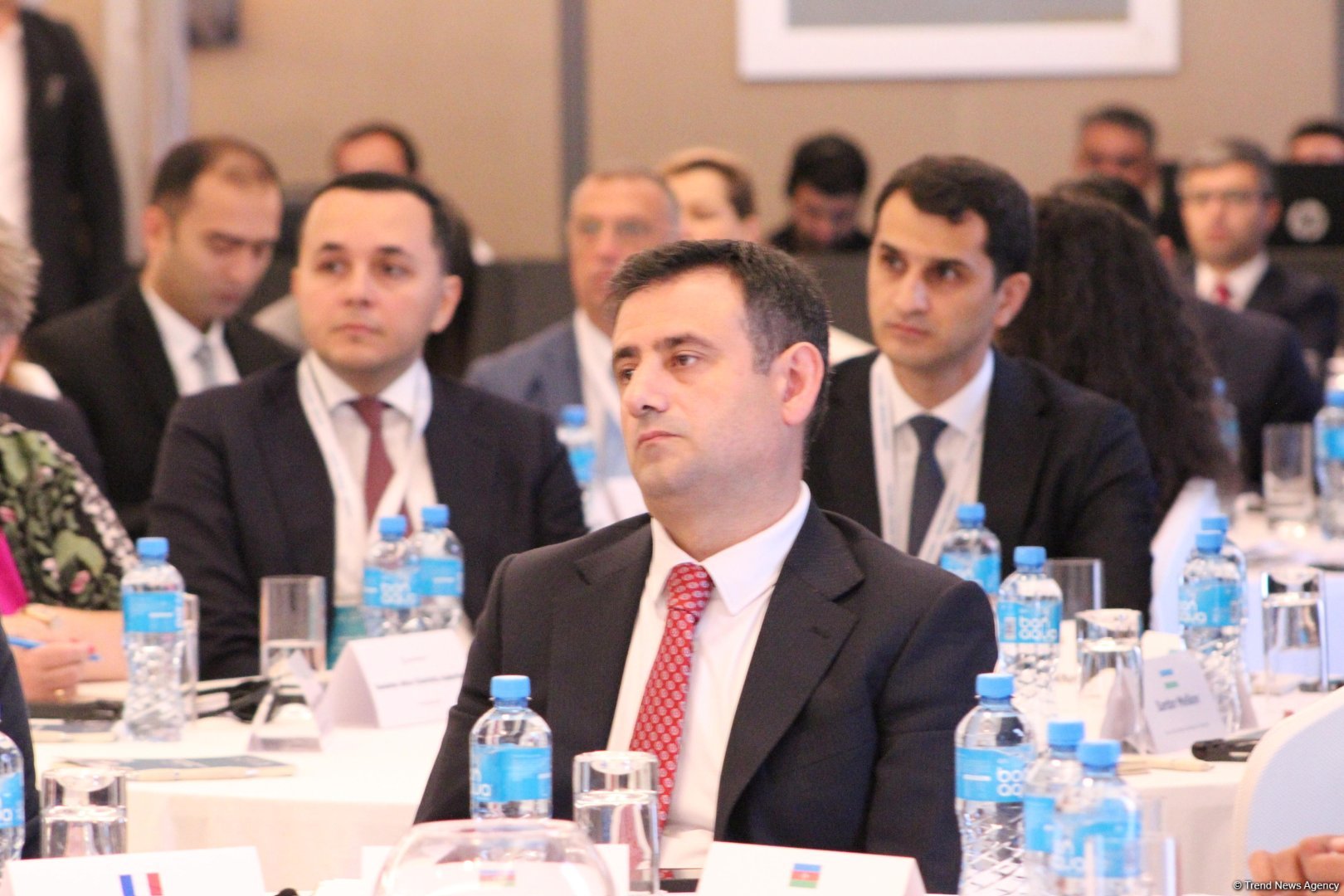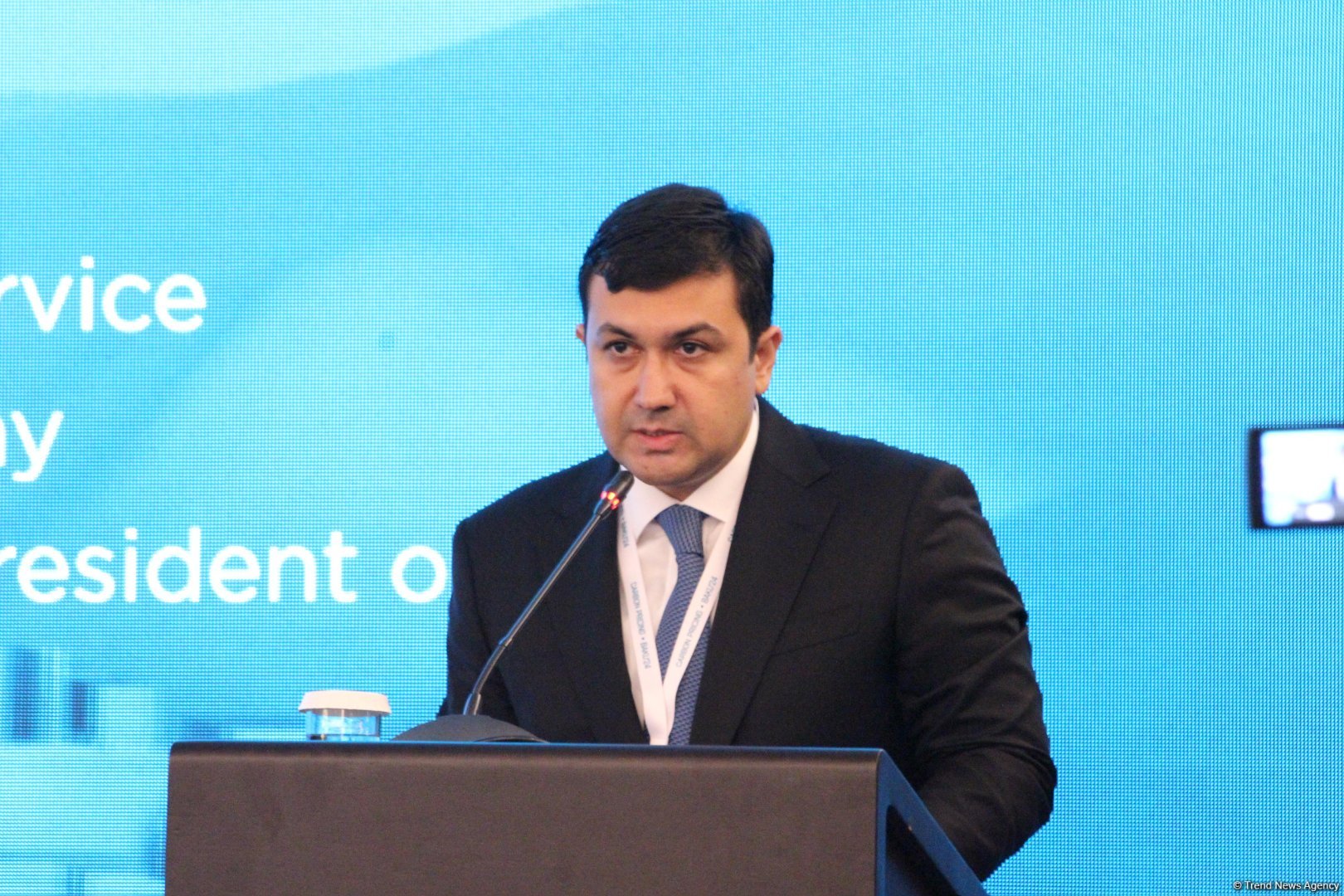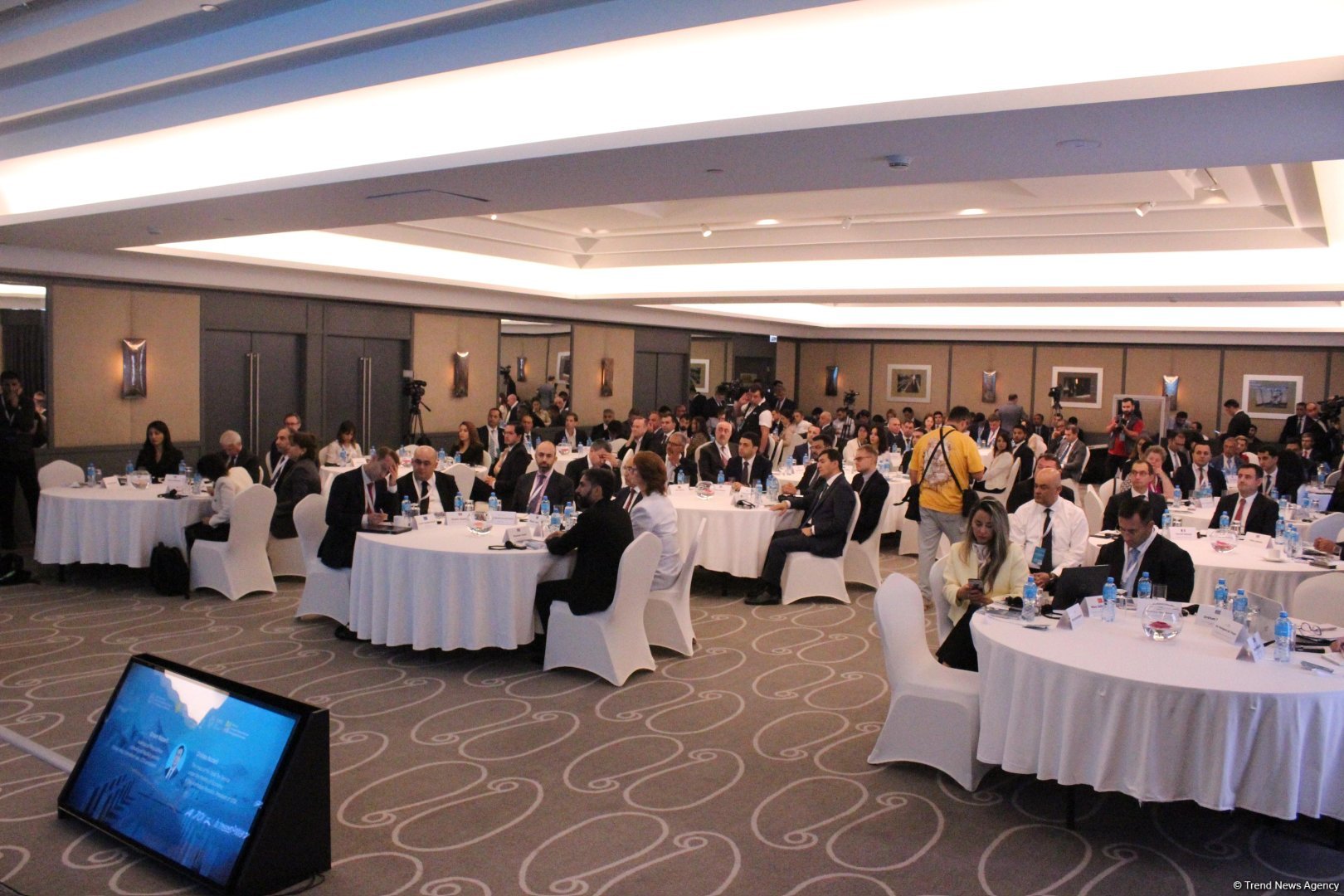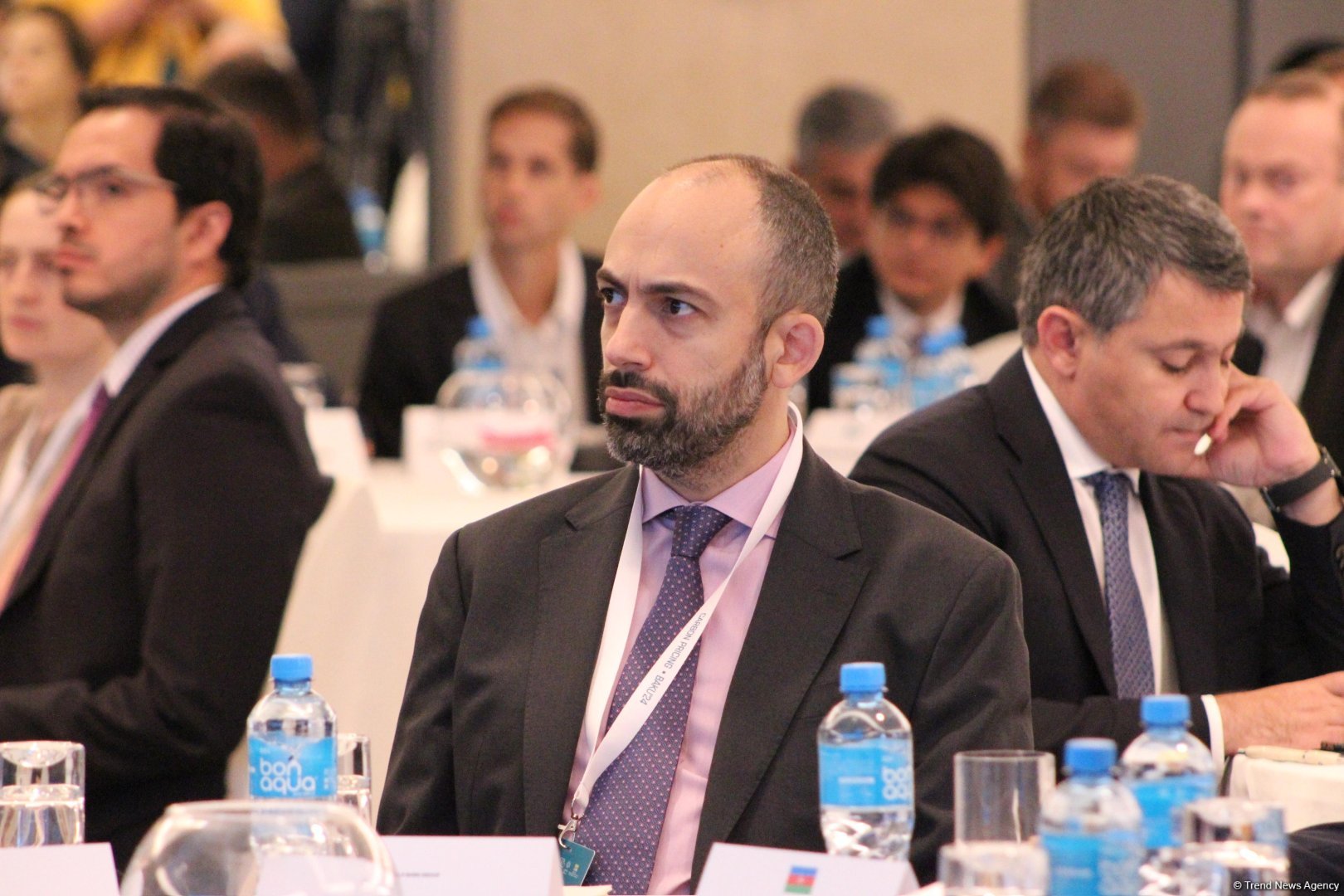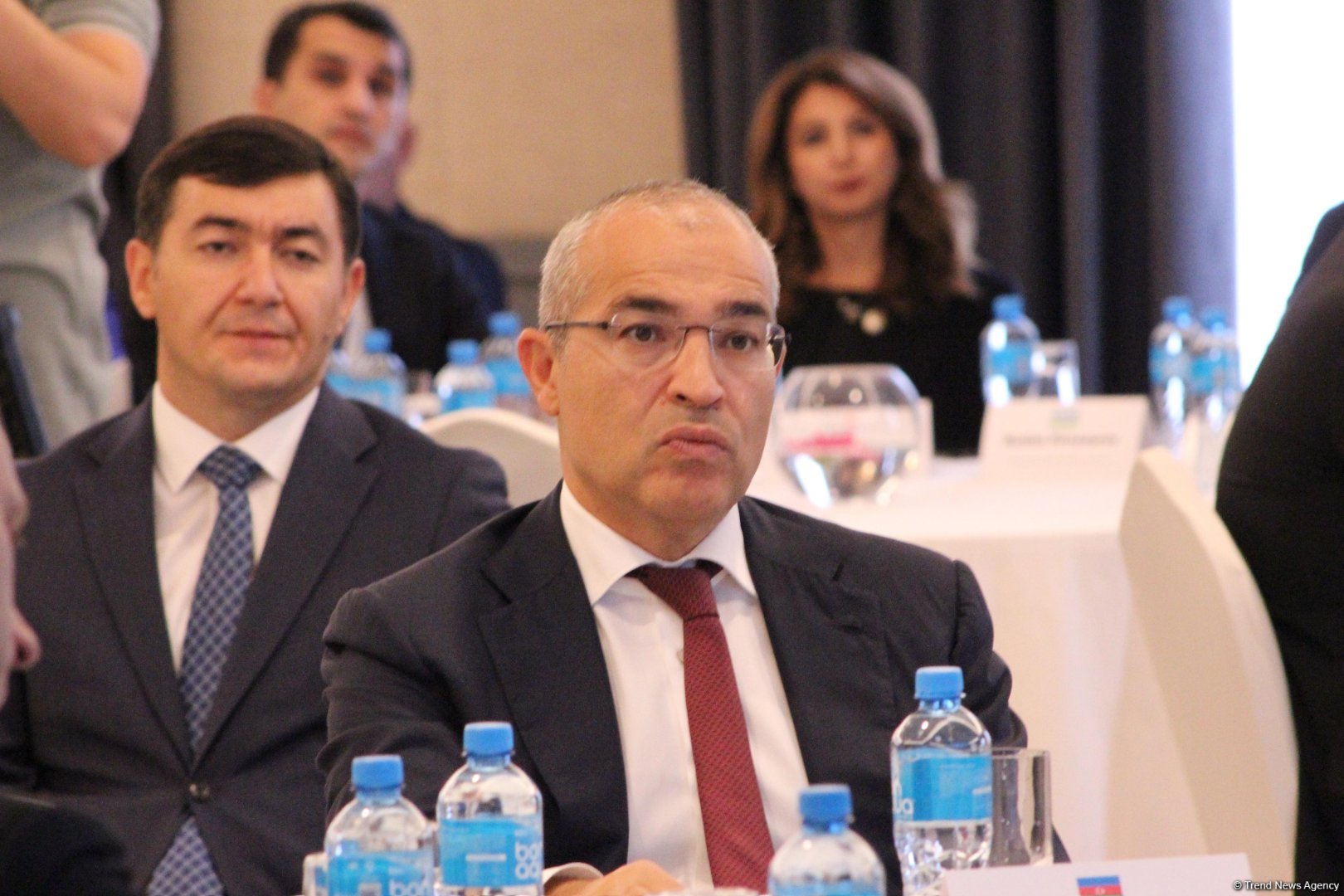BAKU, Azerbaijan, September 25. Baku has hosted an international forum on carbon pricing, Trend reports.
According to the information, the forum was organized by the State Tax Service under the Ministry of Economy of Azerbaijan together with the Intra-European Organization of Tax Administrations (IOTA).
Economy Minister Mikayil Jabbarov, head of the State Tax Service Orkhan Nazarli, and other officials took part in the forum. Delegations from more than 40 countries, including leading foreign experts and specialists, attended the event.
Azerbaijani Economy Minister Mikayil Jabbarov noted that it is planned to raise an initial capital of $1 billion and attract at least ten donor countries to participate in the Climate Finance Action Fund to start its activities.
“In our opinion, this issue will be one of the key topics for discussion within COP29,” the minister emphasized.
Jabbarov mentioned that the main objective of the Climate Finance Action Fund is to increase the contribution of countries with fossil fuel reserves and companies in this sector to the transition to green technologies.
“One of the key initiatives on the COP29 agenda is the establishment of a Climate Finance Action Fund (CFAF). This fund can play an important role in addressing the climate finance gaps that exist today. It is envisioned that the main sources of capital for the fund will come from fossil fuel-producing countries, as well as oil, gas, and coal companies. The main goal of the fund is not only to invest in climate initiatives in developing countries and small island states but also to increase the contribution of countries with fossil fuel reserves and companies of this sector in the transition to “green” technologies,” he stressed.
The minister reminded that Azerbaijan will host such a significant event as the 29th session of the Conference of the Parties to the UN Framework Convention on Climate Change (COP29).
“Today's event directly corresponds to the objectives of COP29. On the agenda is the assessment of the role of fiscal instruments in the decarbonization process. Discussing this issue with representatives of several authoritative international organizations, as well as delegations of IOTA member countries, will be extremely productive for us,” he added.
The head of the State Tax Service under the Ministry of Economy of Azerbaijan, Orkhan Nazarli, in his turn, said that negotiations are underway with international organizations to develop an optimal "green" tax policy for Azerbaijan.
Orhan Nazarli stated the importance of exploring the possibility of introducing a carbon tax or a similar levy aimed at reducing carbon emissions, which is widely used in international practice.
“Within the framework of these activities, the establishment of a system for measuring carbon emissions in our country, which will be the basis for taxation, is also being considered. Ongoing processes to introduce measures similar to those used elsewhere in the world to protect the environment are being actively discussed at the government level with the participation of colleagues from various institutions. Discussions are underway with international organizations, research centers, educational institutions, and industry representatives to share experiences and analyze the challenges of such initiatives. We not only study the best practices but also jointly discuss the challenges they bring to develop the best tax policy for our country,” he noted.
Nazarli mentioned that Azerbaijan has already adopted legislative acts aimed at encouraging the production and use of low-emission products and technologies.
The representative of the International Monetary Fund (IMF) Margaret Cotton stated that carbon pricing is becoming a powerful tool.
“We often hear about the design of tax and climate policies, but as we know, even the best design is meaningless without proper administration. I hope that during the forum we can discuss the many practicalities of implementing these initiatives. Climate risks have macroeconomic impacts. They hit economies, communities, and households hard, contribute to financial instability, and increase inequality. The transition to a new climate economy offers unique opportunities for growth and job creation. Each of us must do our part,” she noted.
According to her, the IMF supports accelerating decarbonization through a package of measures including carbon pricing, elimination of harmful subsidies, targeted policy support, and active cooperation.
“First, on carbon pricing, we can see that it is working. There are now about 70 initiatives in 40 countries, and progress is clear. Carbon pricing is becoming a powerful tool because it not only generates revenue but also fairly incentivizes a shift to low-carbon investment and consumption. Hundreds of millions of euros have already been raised in Europe through compliance measures, and these funds can be used to address inequalities and stimulate green growth,” she emphasized.
The forum will continue its work tomorrow.

